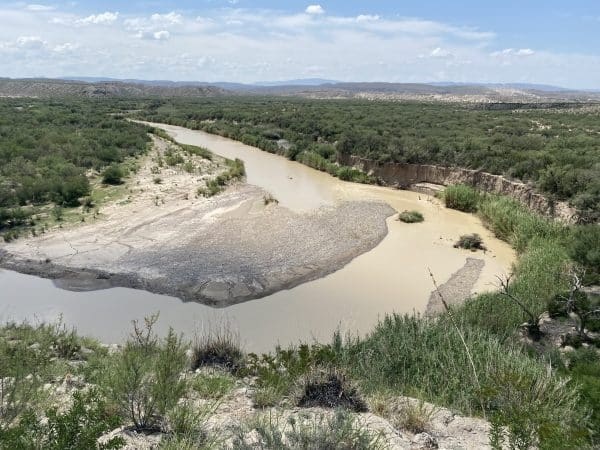Earlier this year, the only sugar mill in Texas – and one of only three in the U.S. – was shuttered due to repeated water shortages that have left the surrounding sugarcane fields barren. The end of the plant marks the end of the sugar industry in South Texas, which will cost the region hundreds of jobs and its farmers a valuable cash crop. The blame, according to the state’s sugar industry as well as Texas officials, lies squarely on Mexico, which has been slow to fulfill its water obligations to the U.S. Mexico argues that it wants to comply with its commitments but is short on water supplies itself amid the worst drought conditions since 2011.
South Texas sugar growers get their water from the Amistad and Falcon Reservoirs on the Rio Grande River, which are primarily fed by rain that falls in the Mexican state of Chihuahua. A 1944 treaty that governs access to the river requires Mexico to give the U.S. one-third of that water—no less than 1.75 million acre-feet—every five years. We are currently in year four of that cycle and Mexico has delivered only 30% of its treaty commitment, the lowest amount at this point of any four- or five-year cycles since 1992, according to data from the International Boundary and Water Commission (IBWC), which oversees the treaty.
Technically, Mexico is not in violation of the treaty as long as it delivers the balance of its water commitment by October 2025. IBWC public affairs chief Frank Fisher said that while the commission shares the sugarcane growers’ concerns, its hands are tied. “We have asked Mexico many, many times, and they have told us that they intend to meet their treaty obligations to deliver water,” Fisher said. “However, they have not shared their plan with us on how they’re going to do that.”
Manuel Morales, secretary of the Mexico section of the IBWC, told the Texas Tribune that Mexico’s “intention is to mitigate that deficit as much as possible” but that the water shortage is due to climate change and the treaty allows more time for deliveries in the event of extraordinary drought.
According to the North American Drought Monitor, nearly 70% of Mexico is covered in some form of drought while 82% is unusually dry. A US pickle shortage, as well as another sriracha shortage, are both tied to extreme drought in Mexico.
However, many Texans argue that Mexico is gaming the system by repeatedly putting off deliveries until the end of the five-year cycle. During the last cycle, two weeks before the October 24, 2020 deadline, Mexico had paid only 89% of its water payment to the U.S., although it did ultimately fulfill its water obligations.
Texas congressional leaders are now asking the US to withhold federal funding to Mexico until it upholds its water commitments. “Farmers and ranchers across South Texas remain under continued financial strain and could suffer a similar fate as the sugar industry, should Mexico continue withholding water,” the lawmakers wrote in a letter to House and Senate appropriators in early May urging them to withhold funding. The U.S. government committed over $138 million in assistance to Mexico in the last fiscal year.
The issue is further complicated by increasing water demands in both countries. Luis Ribera, an economist at Texas A&M AgriLife Extension, explained that since the North American Free Trade Agreement (NAFTA) came to be, producers in northern Mexico shifted from dry crops like corn and cotton to more water-intensive fruits and vegetables destined for U.S. markets. (Sources: Texas Tribune, Texas Farm Bureau, Washington Post, Reuters)










